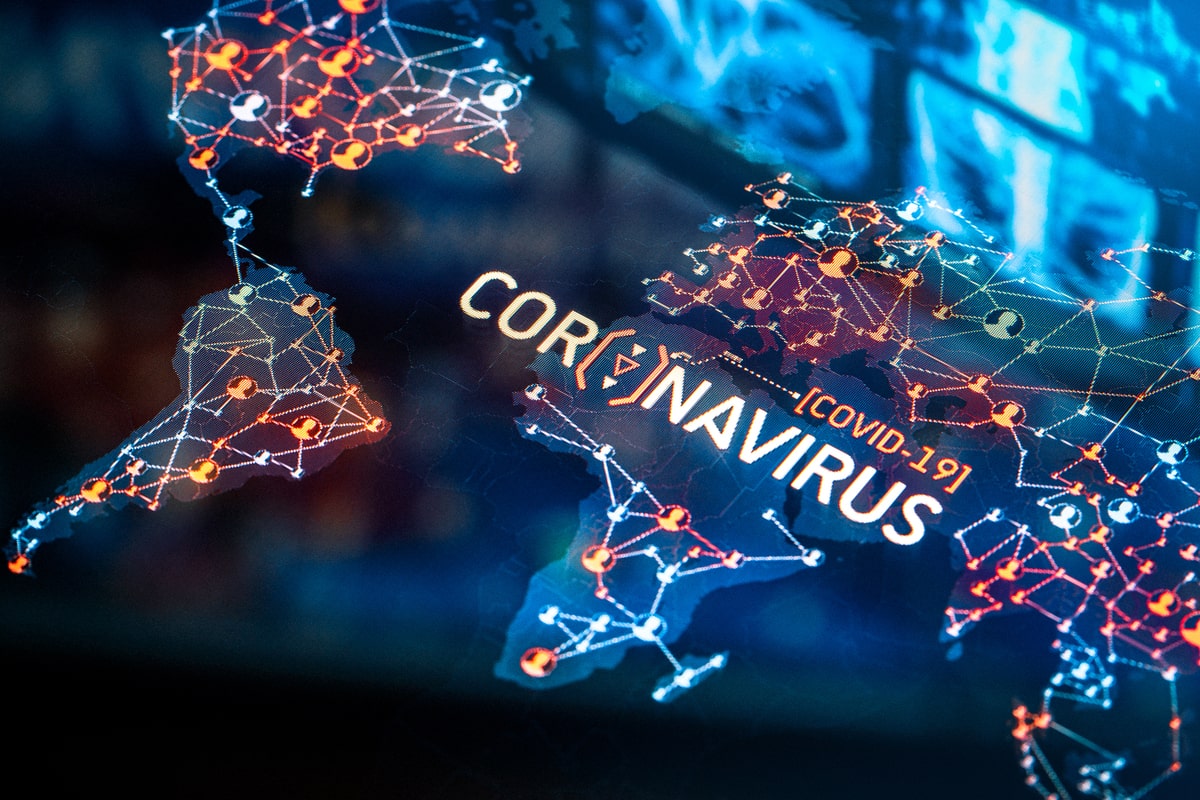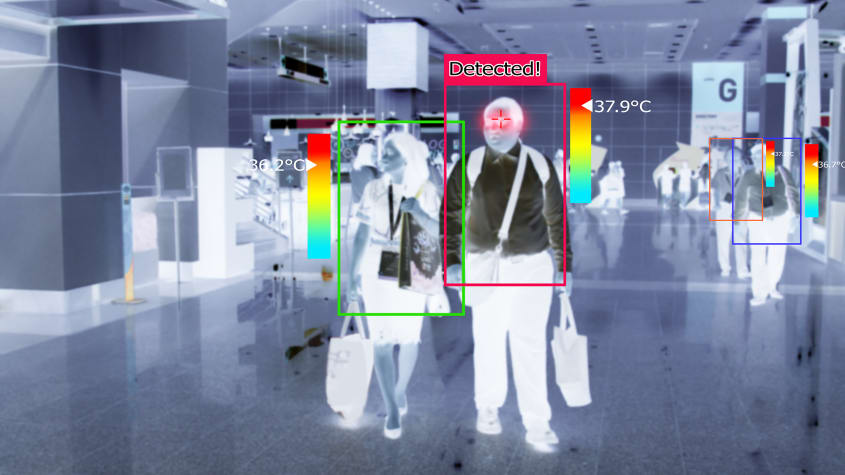
Use of IoT to identify and Control COVID-19
The ongoing flood of the COVID-19 pandemic has influenced all circles of our day by day life. Virologists are wildly looking for the solution to an early vaccine. A cross-disciplinary methodology to develop adequate monitoring, contact tracing, diagnosing/detecting COVID-19 patients is of core importance where IoT can play an important and vital role.
An IoT-based smart solution to fight the COVID-19 pandemic which can include IoT based industrial production of ventilation units, IoT-base smart masks and other medical equipment for monitoring patient's health at the hospital or self-isolation at home can gradually decrease the spread of the virus to new people.
It could be also used to develop new techniques for passive, privacy-preserving contact-tracing techniques, diagnosing COVID-19 patients based on IoT and mobile data collection and analytics without having the patient go for a COVID-19 test and alerting the patient about possible illness. The second wave of Covid-19 can appear at any time therefore having a full preparation to combat the virus is important.

Utilizing IoT can keep our cities functional and the market open even though if there is a possible another wave of COVID-19 e.g. IoT robots, drone deliveries, contactless payments could help the online shopping of groceries and pharmacy specifically for the elderly and vulnerable communities.
This Research Topic aims to highlight the use of IoT technologies that have been employed to identify, control, and limit the impact of the COVID-19 pandemic, particularly in cities. It also investigates the sustainability, tolerability, and reliability of IoT solutions in response to the COVID-19 pandemic such as using IoT enabled wearable technologies that have promising results and the potential to identify COVID-19 cases, eliminate the spread, reduce the impact of the pandemic, privacy, ethical issues of IoT solutions in Bluetooth low energy (BLE) for assessing the implementation of social distancing and contact tracing, the use of fog, edge, cloud computing for faster analysis and test.
The three giant IoT companies WMW, a Belgian “framework” for IoT, Abeeway, a location intelligence solution provider for IoT, and Actility, the leading provider of Low-Power WAN networking solutions, are launching several solutions to tackle the Covid-19 pandemic at different stages, using various geolocation technologies and low-power IoT networks.
Their solution includes:
-
Actility: Provides a fused location provider platform by ThinkPark Location Engine.
-
Abeeway: Process the information provided by the Actility and provide it to WMW.
-
WMW: Provide an adaptive registration dashboard with micro-modules allowing to visualize data from IoT devices and get insights.
Proximity Monitoring Solution ensures people can work safely while preserving a safe distance from other workers or restricted areas.
The TEKTELIC Respiratory Sensor is the ideal solution to monitor patients and vulnerable individuals for potential respiratory illness. This specialized device is designed to continuously monitor and detect the most common symptoms of respiratory illness including increased body temperature and breathing rate
The nurse call system for temporary hospitals provides a push and call system during a health crisis, healthcare facilities create temporary patient care areas that require a way for patients to call for nurses.
In the paper Internet of things (IoT) applications to fight against COVID-19 pandemic they provided a detailed survey of IoT contribution to covid-19.
Several members of the LoRa Alliance ecosystem have stepped up to provide solutions, technology, tips, and resources during this challenging time using LoRaWAN.

An IoT-based smart solution to fight the COVID-19 is very much helpful to identify symptoms and provides better treatment rapidly, keeping the cities functional and the market open, privacy-preserving contact tracing, self-isolation monitoring, implementation of social distancing.